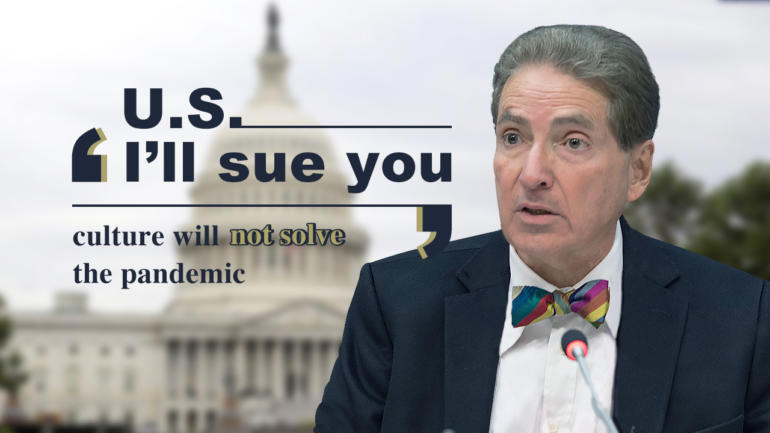Well, first of all, the International Health Regulations constitute an agreement on cooperation, and it does not aim at creating any justiciable rights. It’s not enforceable in criminal court. It’s also not enforceable in a civil court. It is a framework agreement.
Editor’s note: The administration of U.S. President Donald Trump has repeatedly threatened to sue China for COVID-19 damages. Alfred de Zayas, professor of international law, former secretary of the UN Human Rights Committee and UN’s independent expert on the promotion of a democratic and equitable international order from 2012 to 2018, shares his view on this matter. This is part one of the conversation with Professor de Zayas. The opinions expressed in the video are his own, and not necessarily the views of CGTN.
The United States in its reservations and understanding itself, the United States said that these International Health Regulations could not be used to sue others, because it would not create private rights. And why does the United States had that kind of reservation is simply because the United States feared that it would not, on some particular occasion, would not want to play the game of the IHR, and then it would not want to accept any liability for it. So, we are not liable, we Americans, but you are. I mean, it’s ridiculous. I mean, the United States needs to stop doing this.
American courts is one thing, domestic courts is one thing, [but] international tribunals is something else. Before an international tribunal – first of all, you’d have to find a tribunal that would have jurisdiction, and I have difficulty thinking what international tribunal could take the case.
Beyond that, the United States, as you know, withdrew its declaration under Article 36 of the Statute of the International Court of Justice, which is the article on the automatic ipso facto jurisdiction of the ICJ. So, it would not advance if it were to go that route. I find the idea of litigation almost offensive.
People are dying at this moment. The order of the day is to help. The order of the day is to coordinate international assistance, to show solidarity, to show empathy. I mean, to think that you going to make money out of this, to think that you can pass the bill to China is preposterous. It’s immoral to be thinking of litigation.
The litigation will not solve the pandemic, but the United States has an unfortunate culture of “I’ll sue you.” It’s what I would call it the American “I’ll sue you” culture, and it’s almost a syndrome by itself. And it really makes the tragedy of this pandemic into a farce if you think you can pass the bill to China, because China, I think, could have acted faster, but it did not commit a tort on the world. I think China acted reasonably fast, could have acted faster, but it acted reasonably fast, and it observed Annex 2 of the International Health Regulations in determining the level of danger that it poses to the Chinese public health and to world public health. It did inform the WHO, it did cooperate fully with the WHO in advancing the research, and it has offered an enormous help gratuitously to many countries.
Interviewer: Adriel Kasonta
Video editing: Liu Shasha
Graphic design: Yi Yating
Managing editor: Huang Jiyuan
Senior producer: Wei Wei
Managing director: Mei Yan
 CGTN America
CGTN America
